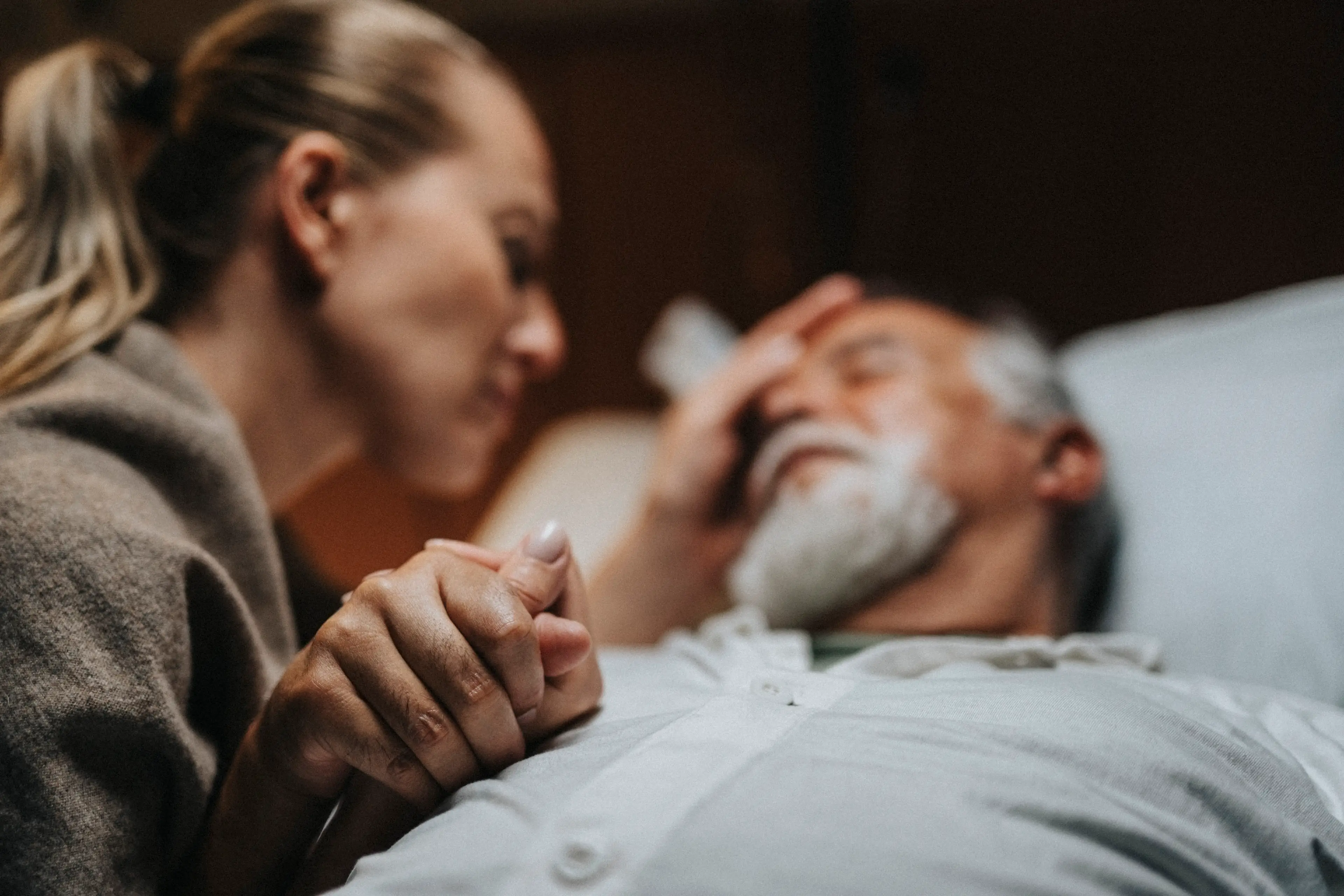
Shortly before someone dies they often let out a sound, which is known as a 'death rattle', and it's important to understand why this sound occurs to prepare yourself as best as you can.
Death is a part of life which, unfortunately, none of us can escape no matter how hard we try. And while there's only so much you can do to ever prepare yourself for the loss of a loved one, there's certain biological processes that happen which it can be good to be aware of to brace yourself for what you may see - or in this case, hear, the 'death rattle' being one of them.

What is a 'death rattle'?
A death rattle 'is a crackling, wet sound that may accompany each breath,' Healthline explains.
It's a 'distinctive sound that a person may make as they are coming to the end of their life'.
Advert
The death rattle can sound 'wet' or crackly and can vary between each breath.
"Sometimes, the sound is soft and moan-like," Healthline continues. "Other times it’s loud and sounds like snoring or gargling."
It can even sound like the person is 'drowning' or 'choking'.
However, the site reassures there's 'no evidence' to suggest the person experiences 'any pain or anxiety' during this moment.
But why do you hear it?

Why you hear it when someone is about to pass
It typically occurs when a person is 'in a weakened state or is in and out of consciousness' with someone not having the physical strength to swallow or cough, their breathing subsequently potentially coming across 'irregular' or 'labored'.
Healthline adds: "They may not be physically strong enough to cough or swallow to clear the secretions from the back of their throat. These secretions include normal saliva and mucus production that people usually swallow and clear without difficulty
and may no longer be able to swallow or cough effectively enough to clear their saliva.
"[...] Their breathing may become irregular, and they may take breaths of varying depths. Sometimes the breathing may be described as 'labored', or appears difficult for the person. When they take a deeper breath, the death rattle sounds may be louder because the deeper, more forceful breath is moving against the secretions in the back of the throat."
Sadly, there's no way to get rid of the sound completely, but there are some things you can to do 'minimize' it.

How to cope with hearing the 'death rattle'
'Repositioning a person so they are turned to their side with their head slightly elevated' can help, alongside monitoring a person's 'oral fluid intake' too.
Medical professionals can sometimes administer certain medicines or mouth care items to help reduce the amount of saliva present, although, Healthline warns: "As a death rattle is often a symptom of the dying process, it may not be possible to eliminate the sound entirely."
A person typically survives 'an average of 23 hours after the onset of a death rattle' so it can signify an important time during the end of life process to gather together and say goodbye, and ensure you have as much support in place as possible to help you through the grieving process.
If you have experienced a bereavement and would like to speak with someone in confidence, contact The Compassionate Friends on (877) 969-0010.
Topics: Health, Mental Health, Science